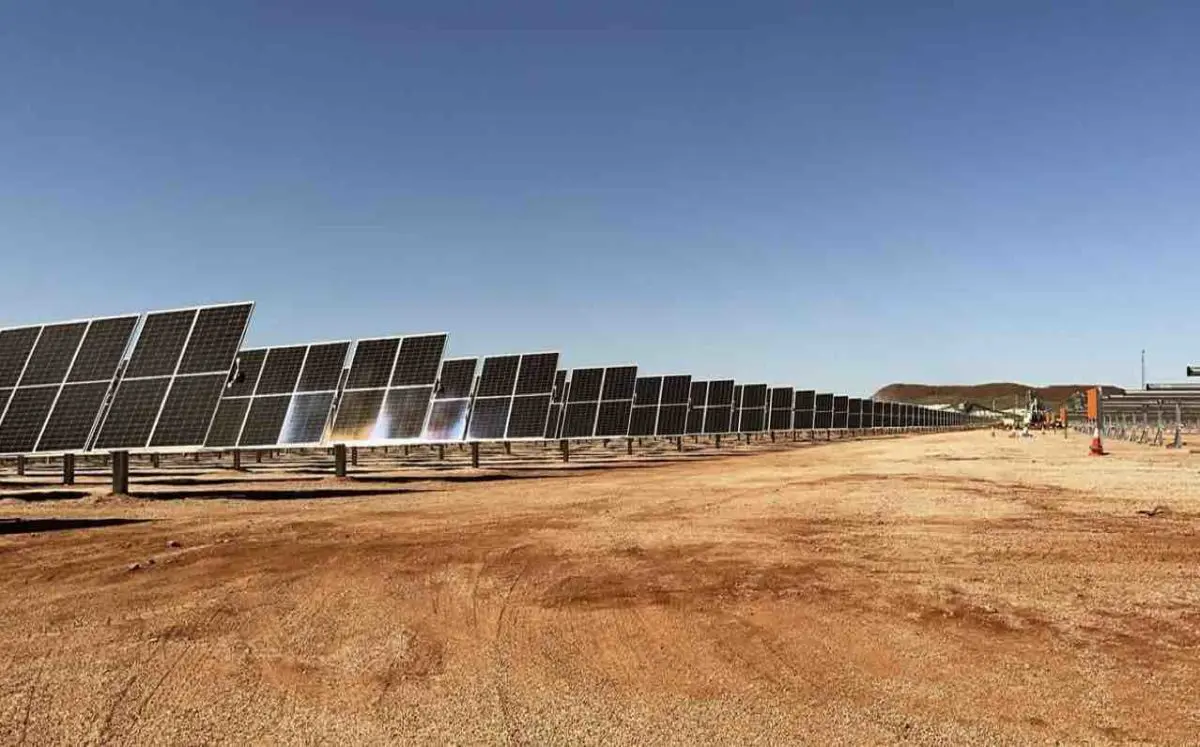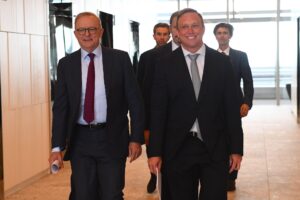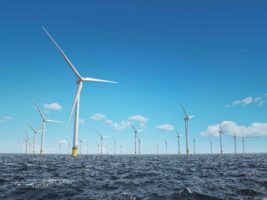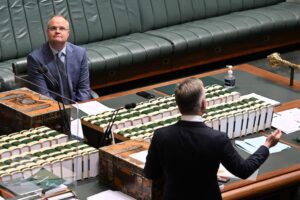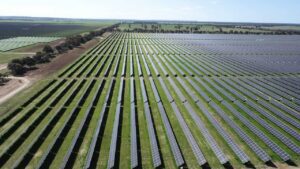Australian business leaders are starting to come to grips with the scale of the carbon challenge, but still don’t understand the need for urgent action and are baulking at targets that fit with the 1.5°C Paris climate goal.
The annual business survey conducted by the Carbon Market Institute (CMI) found that Australian businesses – despite conceding that 2050 is too late to reach net zero targets, are not supporting the interim targets needed to meet the Paris goal.
“It’s becoming a lot more real but people are still grappling with the scale [of action] that we’re going to need,” CMI chief executive John Connor told RenewEconomy.
“There’s an awakening that’s happening. It’s become a lot more real as they’re making these [decarbonising] investments. I think it’s just a matter of people not understanding the importance of acceleration and what that might mean for 2035. A conversation needs to be fast tracked in the life of this government.
“Rather than thinking about long term strategy and reputation they’re looking at the implementation, and also doing that at a time when we’re seeing inflation bloom and supply chain issues.”
Almost half of the executives and board directors polled in the CM’s annual business climate survey said cost was a barrier to decarbonisation, beating policy uncertainty albeit by a small margin.
And yet of those same business people, 87 per cent say the longer Australia waits to decarbonise, the more expensive and more painful it will be.
Furthermore, almost two-thirds say Australia’s net zero by 2050 target is too soft: the country needs to now look to when it can achieve net negative emissions.
Yet when asked to put a number on a medium term period, only half wanted to push for a target higher than 60 per cent by 2035.
The Climate Council says 75 per cent by 2035 is essential for Australia to do its fair share to limit global warming to 1.5 degrees. The International Panel on Climate Change says change must happen even faster: emissions must peak in 2025.
A new confidence
Australia has stepped up its climate ambitions this year.
The new government enshrined a 43 per cent by 2030 emissions reduction, is promising action on fuel standards and creating incentives to buy electric vehicles, and is tackling the carbon credit market via the Chubb review into system integrity and the Safeguard Mechanism reforms.
The country’s businesses have been increasingly nervous about a lack of urgency around climate change and calls for bolder action have grown louder in the last few years.
The step change in ambition this year that is reflected in CMI’s survey shows a confidence that, despite fears over costs, business has for the associated opportunities of climate change action.
Even if cost and regulatory uncertainty are still major factors stymying further corporate action, stakeholder demands and commercial opportunities are forcing them forward.
Furthermore, a large majority of big business believes sectors across the country should share the burden of emissions reduction, calling for the government to impose sector-specific targets to meet the 2050 net zero goal.
Confidence in carbon markets dented
Carbon credit markets are at the forefront of many business peoples’ minds, who gave the country’s frameworks and governance a score of 6 out of 10 for integrity.
And yet business still believes in the value of Australian carbon credits, saying not only that there are not enough available to meet demand in the next up to five years, but forecasting an ACCU price of over $60 by 2030, compared to last year’s prediction of over $40 by the majority of respondents.
And while the use of international carbon credits have been ruled out of changes to the Safeguard Mechanism for now, a compulsory system for high volume emitters, business wants to see Australia start working toward the creation of international carbon markets.
“We’re still setting up these rules internationally but we think [the government] shouldn’t just kick the can down the road,” Connor said.
“In the medium to long term we think there are opportunities for Australia in that trade so we need to be looking to that.”

